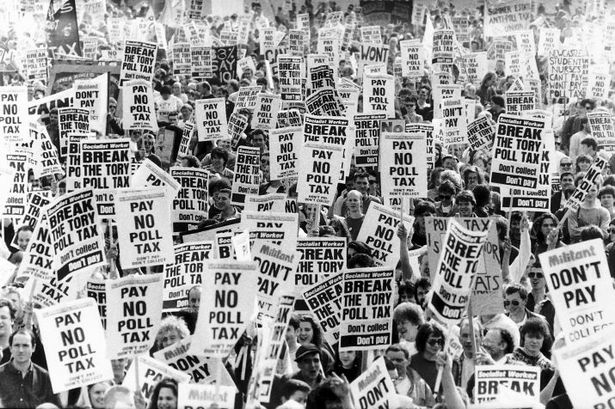Language matters

Language matters.
In 1994 the Conservative Government abandoned one of Margaret Thatcher’s flagship policies, the Community Charge.
The charge was intended to replace domestic rates in funding local services. Its defining character was that every adult over 18 paid the same amount regardless of income, which made it deeply unpopular.
You might not have heard of the Community Charge because no one but the Government used that name. Everyone else called it the Poll Tax. A tax on the right to vote because it applied to everyone over 18.
While there was much that killed the Poll Tax, winning the battle to rename it in the popular imagination was critical. It suggested that the Government were taxing voting and it echoed historic poll taxes that had always attracted popular opposition.
Because language matters.
Indeed, those who win the language battle, often win the battle.
George Osbourne was forced to U-turn over his plans to introduce VAT on hot snacks after the policy was named the Pasty Tax. Climate deniers slowed progress on what used to be called ‘global warming’ after they successfully popularised the far less alarming term ‘climate change’. And Remainers have had some success in christening a second referendum on membership of the EU ‘a people’s vote’.
And you saw the battle of language in the run up to the 2019 general election over the Benn Act, the legislation that attempted to stop the Government seeking a car crash Brexit. Backed into a corner the Prime Minister tried with little success to land the idea that this was a ‘Surrender Bill’. Of course, he used the phrase ‘get Brexit done’ rather more effectively.
Because language matters.
However, away from the heat of political battle in the far more genteel word of marketing, we seem to have walked away from the power of language. Something that used to be second nature to us.
I don’t mean copywriting, a different and equally important craft. I mean using language as a tool to win – positioning your brand, attacking your competitors and simplifying a decision in your favour.
Much has to do with a discipline that has lost focus on how to win and how to make the competition loose. Often marketers seem more interested in corporate wishful thinking and brand introspection rather than understanding how to beat the competition.
But you could also point the finger at the culture of optimisation. If efficiency is your sole concern you focus all your efforts on beating yourself, not the enemy. Language doesn’t feature much when optimisation and not persuasion is your priority.
But it was not always this way.
For a properly competitive bit of language cast your mind way back to the AA’s ‘fourth emergency service’. Not only does it smartly position the brand in a new and compelling category but asks why you’d want the 5th, 6th or 7th Emergency Service. For a period of time the AA won the language battle in their category, alas no more.
In the air, Virgin Atlantic have a long tradition of using language to win. How about ‘Your airline’s either got it or it hasn’t’, ‘BA don’t give a shiatsu’ or, when BA dropped the Union Jack from its planes, ‘Britain’s Flag carrier’?
And you can see the power of competitive, even combative language in Toyota’s ‘the car in front is a Toyota’, Sony’s ‘Colour. Like. No. Other.’, Aldi’s ‘like brands. Only cheaper’, Direct Line’s ‘Can your insurance do that?’ and EE’s ‘Who says you can’t’. Every one, built like a political slogan and as powerful as one.
But by and large our industry is more content in being introspective, nice even, than doing what it takes to win. Like it or loathe it, over in the Palace of Westminster, they know that that this isn’t good enough, politics is binary, it’s about winning and making someone lose. Unleashing the full power of language to frame an issue, promote a cause and simplify a decision.
Because language matters.
Discover more from
Subscribe to get the latest posts sent to your email.
